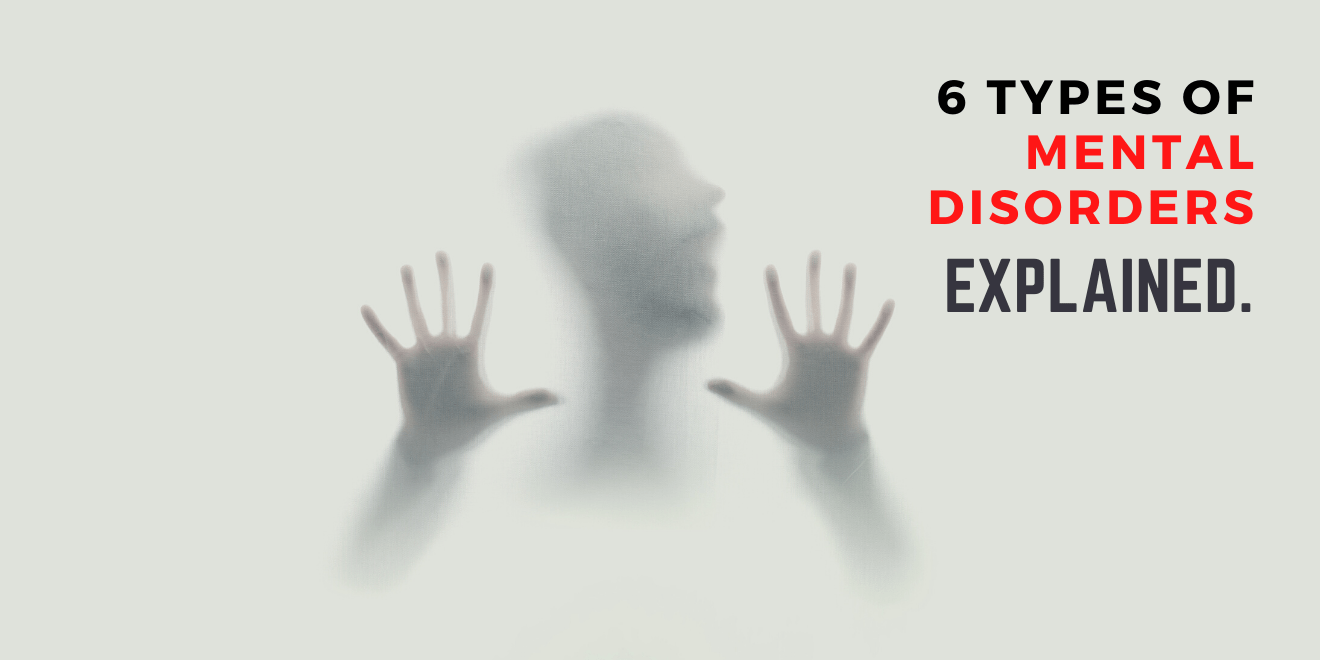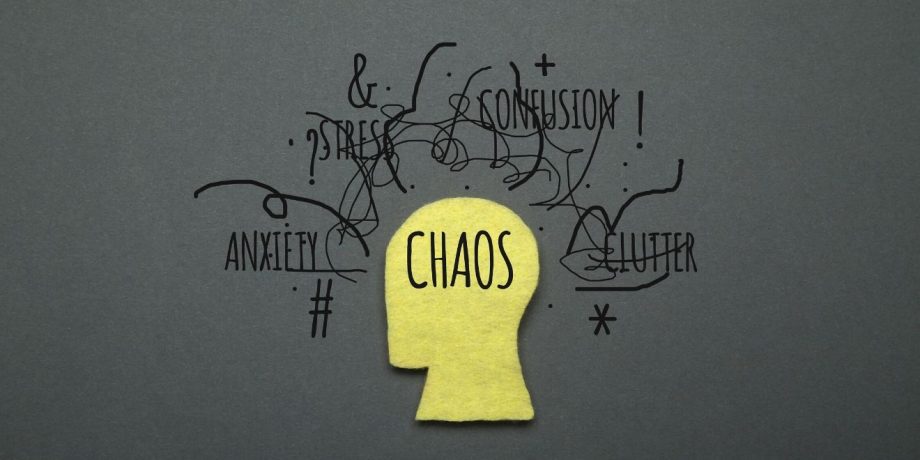6 Types of Mental Health Disorders Explained

Currently, there are almost 300 mental health disorders that are known about today.
These are all categorized under different areas that are relevant to their symptoms. With all these different types, come varying levels of severity and symptoms, so it’s important to remember that they don’t affect everyone in the same way.
In this article, we’ll discuss 6 of the different types of mental health disorders.
Mood disorders are those that are associated with our feelings and emotions—for example, depression or bipolar disorder. While most individuals associate this with feeling down, some disorders consist of intense joyfulness. Disorders that affect your mood can also link to the other areas, as you may begin to feel anxious, struggle to eat, or begin to substance abuse because of your emotions.

Some of the most common eating disorders that are most discussed include binge eating, anorexia, and bulimia. All eating disorders can occur to anyone at any age; however, it is possible to make a complete recovery. Treatment for eating disorders can include medication, as well as phycological treatment. If you’re worried about the cost of certain expenses, it may be worth looking into health insurance. Check out aetna-medicareplans.com to see their options.
Personality disorders are related to unhealthy patterns of thinking, which can cause intense stress and overwhelming emotions. Some individuals might not even know they have a condition because they feel that their reaction is normal and natural. Some of the symptoms of a personality disorder can include an inability to pick up on social cues, suspicion of others, lack of remorse, and unstable self-image.

Psychotic disorders affect the mind and can inhibit us from seeing things clearly. Symptoms are usually quite severe, and individuals struggle to see reality from fantasy. Some of the most commonly known psychotic disorders include schizophrenia and substance abuse.
Occasionally being anxious is a normal reaction. However, those with anxiety disorders continuously feel a sense of panic as they overthink everything. For some, the condition has minor symptoms, and they may feel uncomfortable in social settings. For others, they may experience symptoms of nausea and heart palpitations caused by panic and anxiety attacks.
You might have heard of post-traumatic stress disorder, which occurs when an individual is exposed to intense, stressful experiences. This can occur in soldiers and even children that have been exposed to abuse. These disorders can lead to further problems, including alcohol abuse, drug use, and depression, as they might struggle to move forward.

Mental health disorders are severe, and should all be treated equally and respectfully. If you feel that you are suffering from a condition, you should reach out to your local GP or support service for advice. If you suspect someone of having a mental illness, try and be strong support for them, so they have a helping hand through the difficult times.
These are all categorized under different areas that are relevant to their symptoms. With all these different types, come varying levels of severity and symptoms, so it’s important to remember that they don’t affect everyone in the same way.
In this article, we’ll discuss 6 of the different types of mental health disorders.
6 Type of Mental Disorders Explained
Mood Disorders
Mood disorders are those that are associated with our feelings and emotions—for example, depression or bipolar disorder. While most individuals associate this with feeling down, some disorders consist of intense joyfulness. Disorders that affect your mood can also link to the other areas, as you may begin to feel anxious, struggle to eat, or begin to substance abuse because of your emotions.

Eating Disorders
Some of the most common eating disorders that are most discussed include binge eating, anorexia, and bulimia. All eating disorders can occur to anyone at any age; however, it is possible to make a complete recovery. Treatment for eating disorders can include medication, as well as phycological treatment. If you’re worried about the cost of certain expenses, it may be worth looking into health insurance. Check out aetna-medicareplans.com to see their options.
Personality Disorders
Personality disorders are related to unhealthy patterns of thinking, which can cause intense stress and overwhelming emotions. Some individuals might not even know they have a condition because they feel that their reaction is normal and natural. Some of the symptoms of a personality disorder can include an inability to pick up on social cues, suspicion of others, lack of remorse, and unstable self-image.

Psychotic Disorders
Psychotic disorders affect the mind and can inhibit us from seeing things clearly. Symptoms are usually quite severe, and individuals struggle to see reality from fantasy. Some of the most commonly known psychotic disorders include schizophrenia and substance abuse.
Anxiety Disorders
Occasionally being anxious is a normal reaction. However, those with anxiety disorders continuously feel a sense of panic as they overthink everything. For some, the condition has minor symptoms, and they may feel uncomfortable in social settings. For others, they may experience symptoms of nausea and heart palpitations caused by panic and anxiety attacks.
Trauma-Related Disorders
You might have heard of post-traumatic stress disorder, which occurs when an individual is exposed to intense, stressful experiences. This can occur in soldiers and even children that have been exposed to abuse. These disorders can lead to further problems, including alcohol abuse, drug use, and depression, as they might struggle to move forward.

Mental health disorders are severe, and should all be treated equally and respectfully. If you feel that you are suffering from a condition, you should reach out to your local GP or support service for advice. If you suspect someone of having a mental illness, try and be strong support for them, so they have a helping hand through the difficult times.




































































































